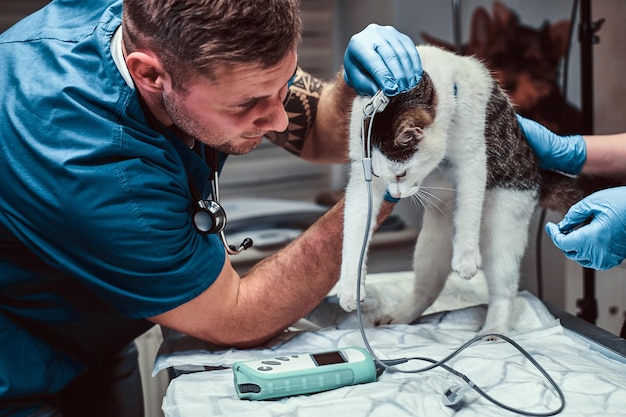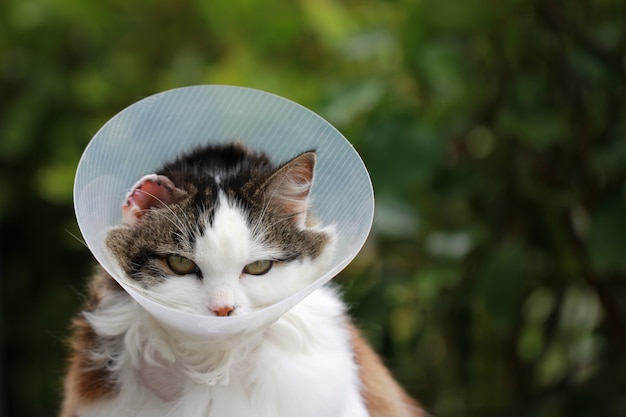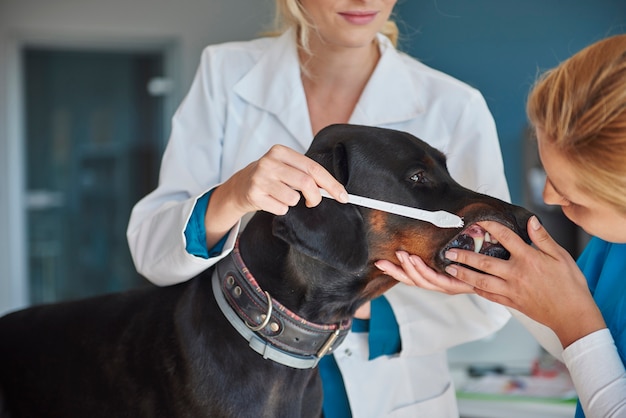Understanding Pet Ultrasounds at Alpharetta Animal Hospital

Understanding Pet Ultrasounds at Alpharetta Animal Hospital
If you have ever wondered how veterinarians look inside your pet's body without surgery, you are not alone. Many pet owners in Alpharetta and surrounding communities are curious about the advanced tools their local veterinary team uses to diagnose and treat health concerns. One of the most valuable tools in modern veterinary medicine is the ultrasound. At Alpharetta Animal Hospital, located conveniently at 80 Milton Avenue, Alpharetta, GA 30009, our veterinarians use ultrasound imaging to gain crucial insights into your pet’s health. From detecting hidden illnesses to monitoring ongoing conditions, a pet ultrasound in Alpharetta can be the difference between uncertainty and peace of mind.
This blog will guide you through everything you need to know about ultrasound for dog and cat patients. You will learn how ultrasounds work, what symptoms might prompt your veterinarian to recommend this diagnostic, and what you can expect during your pet’s appointment. We will also discuss how ultrasound technology leads to better treatment outcomes and why choosing a quality vet near me is essential for your pet’s care. If you are seeking more details about veterinary ultrasound services in Alpharetta, you can always review our veterinary ultrasound services at Alpharetta Animal Hospital for an in-depth look.
When Should Your Pet Have an Ultrasound? Recognizing the Signs
You know your pet better than anyone, and noticing subtle changes in their behavior or health is often the first step toward early intervention. There are times when a standard examination or blood test does not provide all the answers, and that is when an ultrasound for dog and cat patients becomes invaluable.
Key symptoms that may lead your veterinarian to recommend a pet ultrasound in Alpharetta include ongoing vomiting, diarrhea, or unexplained weight loss. Additionally, difficulty urinating, changes in appetite, or persistent abdominal pain can signal the need for a closer look. Other signs your pet might need advanced imaging are sudden lethargy, visible swelling, or abnormal laboratory results. Sometimes, your veterinarian may even suggest an ultrasound to monitor chronic conditions, such as kidney disease or heart problems, or to check for internal injuries after an accident.
In our region, pets can be affected by seasonal parasites or ingest foreign objects during outdoor play, both of which might result in symptoms that prompt veterinary diagnostics in Alpharetta. If you notice any of these changes in your pet, scheduling an appointment for a professional assessment is the first step toward accurate diagnosis and prompt care. Learn more about the types of wellness examinations and check-ups for pets that can help detect issues early.
How Do Pet Ultrasounds Work? Understanding the Technology
Ultrasound imaging is a non-invasive, pain-free diagnostic tool that uses sound waves to create real-time images of your pet's internal organs. Unlike X-rays, which are best for viewing bones and dense structures, ultrasounds excel at visualizing soft tissues. This makes them ideal for examining the abdomen, heart, liver, kidneys, and reproductive organs.
The process involves placing a small probe, called a transducer, on the shaved area of your pet’s body. This probe emits harmless sound waves that bounce off internal structures, creating a live image on a monitor. Our veterinary team in Alpharetta uses this technology to observe organ shape, detect abnormal growths, monitor pregnancies, and assess blood flow. Because the procedure is painless and does not use radiation, it is suitable for a wide range of dogs and cats, including seniors and pregnant pets.
Advancements in veterinary ultrasound allow our veterinarians to diagnose complex conditions and recommend targeted treatments with confidence. Whether your pet is experiencing acute symptoms or living with a chronic illness, an ultrasound provides the detailed information needed for tailored care.
What to Expect: The Ultrasound Appointment at Alpharetta Animal Hospital
When your veterinarian recommends an ultrasound for your dog or cat, it is natural to feel some anxiety about the process. At Alpharetta Animal Hospital, we prioritize your pet’s comfort and your peace of mind during every diagnostic procedure.
Before the ultrasound, your pet may need to fast for several hours to ensure a clear view of the organs. Our veterinary team will explain any specific preparation instructions when you schedule your appointment. During the procedure, your pet will be gently positioned on a padded table. Most pets remain calm with gentle restraint and the soothing presence of our caring staff. In some cases, mild sedation may be recommended if your pet is especially anxious or wiggly.
The actual ultrasound typically takes between 20 and 45 minutes, depending on the area being examined. You are welcome to ask questions at any time; our veterinarians are always happy to explain the process and findings. After the ultrasound, your pet can usually go home right away, and you will receive results promptly, along with recommended next steps for treatment or further diagnostics.
For conditions that require more comprehensive evaluation, our in-house diagnostic laboratory services for pets and digital radiology services for advanced pet imaging may be used alongside ultrasound to provide a complete picture of your pet's health.
How Ultrasound Guides Treatment and Improves Outcomes
Ultrasound for dog and cat patients is not just about finding a diagnosis; it is a critical step in planning effective treatment. By providing a real-time look inside your pet’s body, ultrasounds enable our veterinarians to pinpoint the exact location and nature of a problem.
For example, if your dog is showing signs of abdominal pain, an ultrasound can help determine if the issue is related to the liver, spleen, intestines, or another organ. This targeted information allows us to recommend the most appropriate treatment, whether it is medication, dietary changes, or surgery. In cases of suspected tumors or cysts, ultrasound can guide fine-needle aspiration or biopsy, making these procedures safer and more precise.
When it comes to managing chronic conditions, such as heart or kidney disease, regular ultrasounds allow our veterinary professionals to monitor changes over time and adjust treatments proactively. This approach often leads to better outcomes and a higher quality of life for your pet.
Supporting Your Pet’s Health at Home: Prevention and Early Detection
While ultrasounds are a powerful tool for diagnosis and management, prevention and early detection remain the cornerstones of lifelong pet health. Bringing your pet for regular wellness exams is the best way to catch health changes before they become advanced. During these visits, our veterinarians may recommend baseline blood work or other screening tests, which help identify subtle shifts in organ function.
At home, you can support your pet’s health by observing their eating habits, energy level, and bathroom behavior. If you notice anything unusual, such as a loss of appetite, vomiting, changes in urination, or sudden fatigue, do not hesitate to schedule a veterinary visit. Maintaining a healthy diet, providing regular exercise, and keeping up with parasite prevention are also important components of preventive care in Alpharetta and nearby communities.
If you are ever unsure about your pet’s symptoms or risk factors, our team is always available to answer questions and guide you toward the right care options. Remember, early intervention is key; the sooner a concern is addressed, the more effective the treatment can be.
When to Seek Veterinary Care: Acting Quickly for Your Pet’s Health
Some symptoms warrant immediate veterinary attention, especially when it comes to the need for diagnostic imaging. If your pet is experiencing persistent vomiting, severe abdominal pain, difficulty breathing, or sudden collapse, contact your veterinarian without delay. Internal injuries, blockages, or rapidly progressing illnesses can quickly become life-threatening if not addressed promptly.
Our veterinary professionals are skilled at determining when a pet ultrasound in Alpharetta is necessary and will walk you through each step of the process. If you are searching for a quality vet near me who offers advanced diagnostics and compassionate care, our team is ready to help. Never wait to seek help if you are worried about your pet’s wellbeing; prompt action can make all the difference.
Compassionate, Comprehensive Pet Care in Alpharetta
At Alpharetta Animal Hospital, we understand that your pet is a cherished member of your family. Our commitment is to provide advanced diagnostic tools, like ultrasound for dog and cat patients, along with a full range of preventive and therapeutic services. When you choose our veterinary team for your pet's care, you are choosing experience, compassion, and the latest in veterinary medicine.
If you have questions about whether a pet ultrasound in Alpharetta is right for your pet, or if you want to schedule an appointment, please call our team at (770) 475-7613 or stop by our 80 Milton Avenue, Alpharetta, GA 30009 location. We invite you to explore more about our veterinary ultrasound services at Alpharetta Animal Hospital or schedule a wellness examination to keep your pet healthy year-round.
Your pet deserves the best veterinarian near me, and our entire veterinary team is dedicated to supporting you at every step. Reach out today for trusted veterinary diagnostics in Alpharetta and let us partner with you in ensuring a long, healthy life for your furry family members.
This article is intended for informational purposes only and is not a substitute for professional veterinary care. Always consult your veterinarian for diagnosis and treatment tailored to your pet’s individual needs. For more information on veterinary ultrasounds and other diagnostic tools, you can visit reputable resources such as the American Veterinary Medical Association or the American Animal Hospital Association.


















